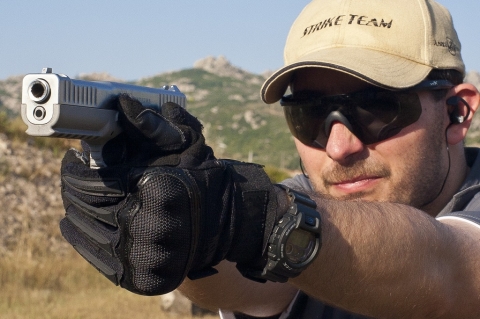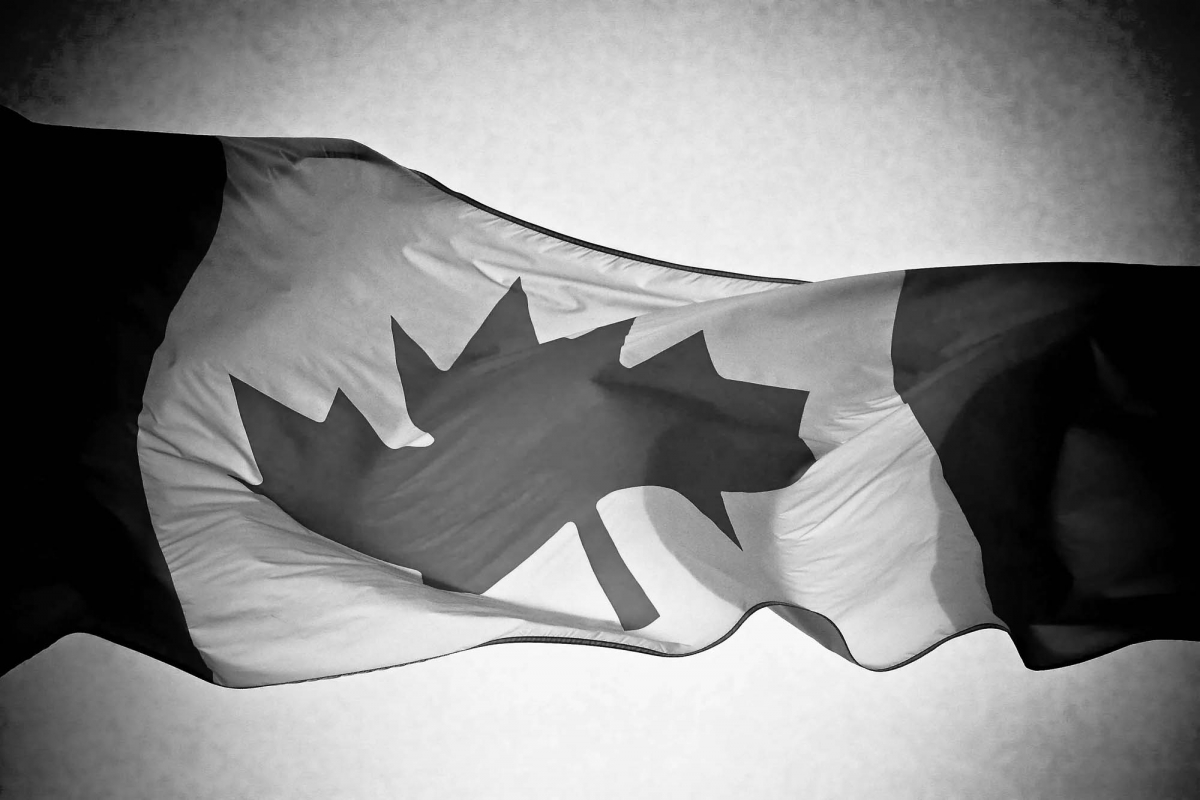Canada bans Modern Sporting Rifles by Order in Council
The Coronavirus didn't stop the gun grabbers: Canadian Prime Minister Justin Trudeau pushed for an Order in Council on May 1st, 2020, banning over 1500 different types of modern sporting rifles and carbines. Ignorance won over justice.
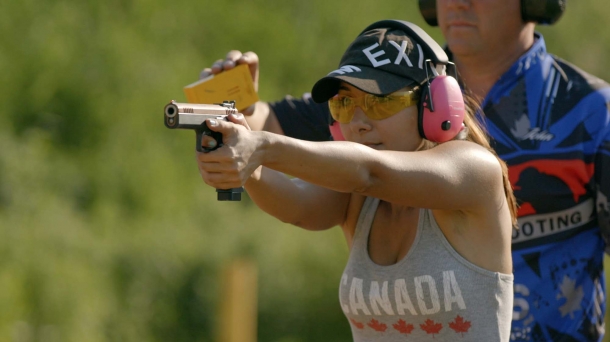
The rich Canadian tradition of hunting and sport shooting was hardly and unjustly hit by Prime Minister Justin Trudeau and his Liberal majority
After Great Britain, Australia and New Zealand, another Commonwealth Country falls victim of extreme hoplophobia: Canada. On May 1st, 2020, Prime Minister Justin Trudeau – the leader of the Liberal Party of Canada, a long-standing supporter of gun control – supported and pushed for a far-reaching violation of the rights of countless, law-abiding, licensed Canadian gun owners who are already oppressed by some of the strictest gun laws in the western world.
With an Order in Council – the equivalent of a government decree, requiring no involvement of the Parliament – the Trudeau government banned over 1500 different types of "Black Rifles", these being the modern sporting rifles and carbines that are often derogatively dubbed "Assault Weapons" by gun control advocates. The list of the newly-banned firearms has been published the same day on the Canada Gazette.
The main target of Trudeau's OiC was the AR-15 design: over 1000 variants were banned by name

All the variants of the Vz.58 design – one of the very few modern semi-automatic rifles in 7.62x39 caliber left in the Country – were also banned
Since the Second World War, Canadian gun laws have been periodically strengthened – every time, by Liberal Party governments. As of today, firearms in Canada are divided in three categories: Non Restricted firearms, Restricted firearms and Prohibited firearms.
Non Restricted firearms include most classic repeating and autoloading hunting and sporting firearms, and a small number of modern sporting rifles; Restricted firearms include all handguns and most MSRs, or "Black Rifles"; Prohibited firearms are all the firearms that are banned from civilian ownership. Classification systems are in effect in many Countries, but while in most of Europe said power is assigned to Proofing Houses or other more or less independent authorities, in Canada it is all in the hands of the Royal Canadian Mounted Police. Both the Police and the Government can also act to retroactively change the classification of a firearm – more often than not, in a restrictive way.

The Ruger Mini-14 was also banned – a long-standing target of the Canadian gun grabbers

All the variants of the M14 and M1A rifle design are among the freshly-banned guns
Many European and American shooters will be surprised to know that pocket pistols, handguns in .25 and .32 caliber other than those authorized for Olympic shooting, and all variants of the FN FAL/L1A1 and AKM designs have been Prohibited in Canada for decades now.
Two different types of licenses – known respectively as PAL and RPAL – are required for the possession and acquisition of Non Restricted and Restricted firearms. The Restricted firearms are registered to their owners everywhere in Canada, while a comprehensive register of all long guns – including Non Restricted firearms – is in place only in Quebec.
Stringent storage rules are in place, and Restricted firearms can be transported only towards gun shops or gunsmiths, to be sold, or to authorized shooting ranges – and only taking the most direct route. When transporting a Restricted firearm, a shooter must also carry along a broad array of documents, and leaving even just one piece of paper at home will make said shooter a criminal in the eyes of Canadian law.

The list of banned firearms also includes all the variants of the SIG Sauer MCX...
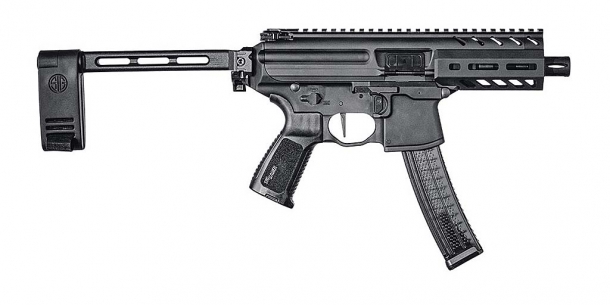
...as well as all the variants of the pistol-caliber SIG Sauer MPX...

...and the entire line of SIG SG-550 / PE-90 rifles and carbines
Unlike in many other Countries where firearms are subject to licensing and registration, property rights on guns are not absolute in Canada: they're tied to the validity of a standing license. Owning a firearm under an expired license makes the owner a criminal, even if the license was valid when the firearm was purchased and registered. Shooters who don't wish to renew a license or have it revoked or not renewed must either transfer the firearms to other licensed owners or turn them in to the Police for forfeiture.
Owners of Prohibited firearms who purchased them before they were banned – as in this case – must keep them at home under very strict safe storage rules and can not load them. These firearms can not be fired and may leave the homes where they're kept only to be exported from Canada or to be turned in to the Police for forfeiture. This, until an act of the Canadian Parliament will decide whether these firearms must be turned in – either with or without compensation – or will be grandfathered. Both options have been applied to Prohibited firearms in Canada before.
However, it's unclear whether or not the owners of former Non Restricted or Restricted firearms that are now Prohibited will have to turn them in to the Police if their standing licenses expire before the Parliament takes a stand on the matter.

Also banned were all the pistol and carbine variants of the CZ Scorpion EVO design...

...and even the Beretta Cx4 Storm pistol-caliber carbine, a purely sporting purposes gun!
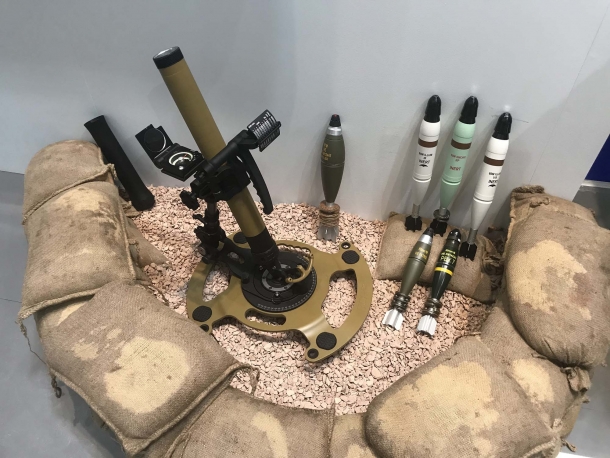
The ban list includes all and all firearms exceeding 20mm in caliber: this includes mortars, rocket launchers, and anti-matériel rifles that never made it to the civilian market, anywhere in the world. Who on Earth wrote the list?
Some details of the list of newly Prohibited firearms led observers to doubt of the competence of whoever was tasked to write it – competence in both the field of firearms and the basic use of search engines.
So to speak, the list of banned AR-15 variants now includes things that are not firearms, such as some pages linked to the famous websites AR15.com and ARFCOM, as well as the Blackwater BW-15 – an airsoft replica.
Even more laughably, the list of now Prohibited firearms superior to 20mm in caliber includes mortars, rocket and grenade launchers, anti-matériel rifles, flare launchers, and other armaments that were never distributed to civilians anywhere in the world – much less in Canada – except maybe for a selected handful of specialized collectors, museums or other special entities. No exception for said entities exists so far: will war museums all round Canada have to destroy their mortars and bazookas?
And there's more: following almost literally a British proposal dated back to 2017, now all firearms that propel a projectile at a muzzle energy of 10.000 Joules or up are now banned in Canada. This includes .50-caliber rifles, very popular for long-range shooting sports in the vast wilderness of the True North. Incidentally, however, said prohibition ends up hitting other popular long-range caliber rifles – .375, .458, .416, .460, to name a few – as well as many Safari and “Big Five” hunting rifles.
And the prohibition of firearms with a bore of and exceeding 20mm will hit 8-gauge shotguns and even some 10-gauge shotguns with removable chokes.

The Robinson Armament XCR rifle, a popular alternative to the AR-15, is among the banned firearms

Last, but not least, all .50-caliber long-range sporting rifles are now Prohibited firearms in Canada
Why an Order in Council?
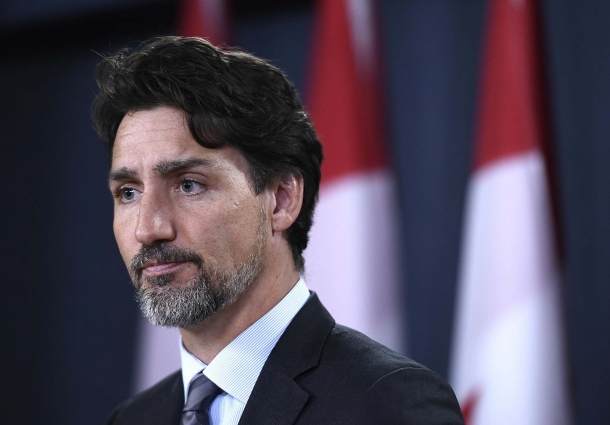
Canadian Prime Minister Justin Trudeau and his Liberal Party haven't been friends with the gun owners community for many years
The Liberal Party of Canada has long been a supporter of strict gun control, and acted multiple times during the decades to follow the line of other British Commonwealth Countries. Prime Minister Justin Trudeau and his Government has acted to impose gun control in Canada during the previous legislature; mass shootings in Canada are exceedingly rare, but some like the Ècole Polytechnique massacre led to the birth of a particularly vicious gun control advocacy movement that is very active in the cities of Toronto, Ottawa and Montreal.
Both Trudeau and William Sterling Blair – Canada's Minister of Public Safety – stated that the now Prohibited firearms have no other purpose but to "kill the biggest amount of people in the shortest amount of time", and declared that the ban is a response to the tragic Nova Scotia attacks of April 18 and 19, the worst mass shooting so far in the history of Canada.
It's worth noting, however, that the Nova Scotia shooting does not really seem to warrant new gun laws. The shooter was found to have a criminal record; he did not have, and never had had, a gun license of any kind in Canada; and none of the banned firearms were among those he used for the massacre. He did, however, use the service pistol of Royal Canadian Mounted Police Constable Heidi Stevenson, who was the first law enforcement officer to respond to his carnage and also fell among his victims.
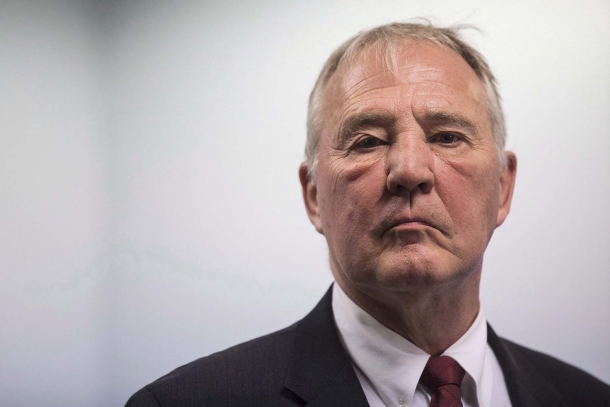
Minister Bill Blair declared the Canadian market "closed to assault weapons"
Even worse, the Nova Scotia shooter owned RCMP uniforms and a replica RCMP cruiser; the RCMP reaction was criticized by some observers; no emergency alert was launched during the shooting, and the confusion and lack of coordination during the tragic hours of the rampage led some RCMP officers to open fire on a local firehouse by mistake. Last, but not least, nine of the twenty-two victims were not killed by gunfire but died in fires lit by the gunman.
If anything, the blame for the massacre would lay on the Authorities and their inability to protect citizens. But the same could be said about the 2019 Christchurch shooting in New Zealand – and that shooting also led to an extreme, unwarranted tightening of gun laws, strongly sponsored by the New Zealand Labour Party and by New Zealand Prime Minister Jacynda Ardern, a well-known personal and political acquaintance of Justin Trudeau.
And yet, in this case, another element comes into play: following the October 2019 Federal elections, Justin Trudeau was unable to secure a strong majority for the Liberal Party, and he is now heading a minority government supported by the NDP and the Canadian Green Party. Any new gun control bills introduced in Parliament would have been opposed by the Conservative Party of Canada as well as by some MPs of Trudeau's own side, particularly those elected in rural constituencies and those who can't forget Trudeau's involvement in the SNC-Lavalin affair or the well-publicized racist behaviours of his past.
Had said bill been put to vote in the Canadian Parliament and been rejected, Trudeau would have been exposed to a vote of no-confidence, which could have led to the Trudeau Government's ousting and to snap elections. The Order in Council, albeit allowed by law, is unusual in this kind of affairs, and was used as a measure to avoid a dangerous involvement of the Parliament.

Unintended consequences: the ban on firearms 20mm and up in caliber covers exquisitely civilian designs such as this antique Westley Richards 8-bore external hammer double-barrel shotgun
So, what now?
The RCMP often uses the classification power to ban modern sporting firearms from import
The assault against the rights of law-abiding Canadian gun owners is far from over: Justin Trudeau already stated his intentions to pass legislation that would grant cities and towns the right to ban handgun ownership in their jurisdictions. Such legislation would hit gun owners in most major large urban areas, ruled by the Liberal Party, but since gun laws in Canada are a Federal exclusive and are not devolved to local, Province or Territorial authorities, such legislation would have to pass through Parliament.
Many modern sporting rifles and carbines are still available on the Canadian civilian market, even after the new ban, but many Canadian gun owners now fear that they will be the next to be banned by the Liberal government. Plus, as we already mentioned, the power to classify a firearmm as Non Restricted, Restricted or Prohibited – thus, to allow or deny its distribution on the Canadian civilian market – is fully in the hands of the Royal Canadian Mounted Police. And the RCMP is known to often abuse this power to ban distribution of any firearm they just don't like.
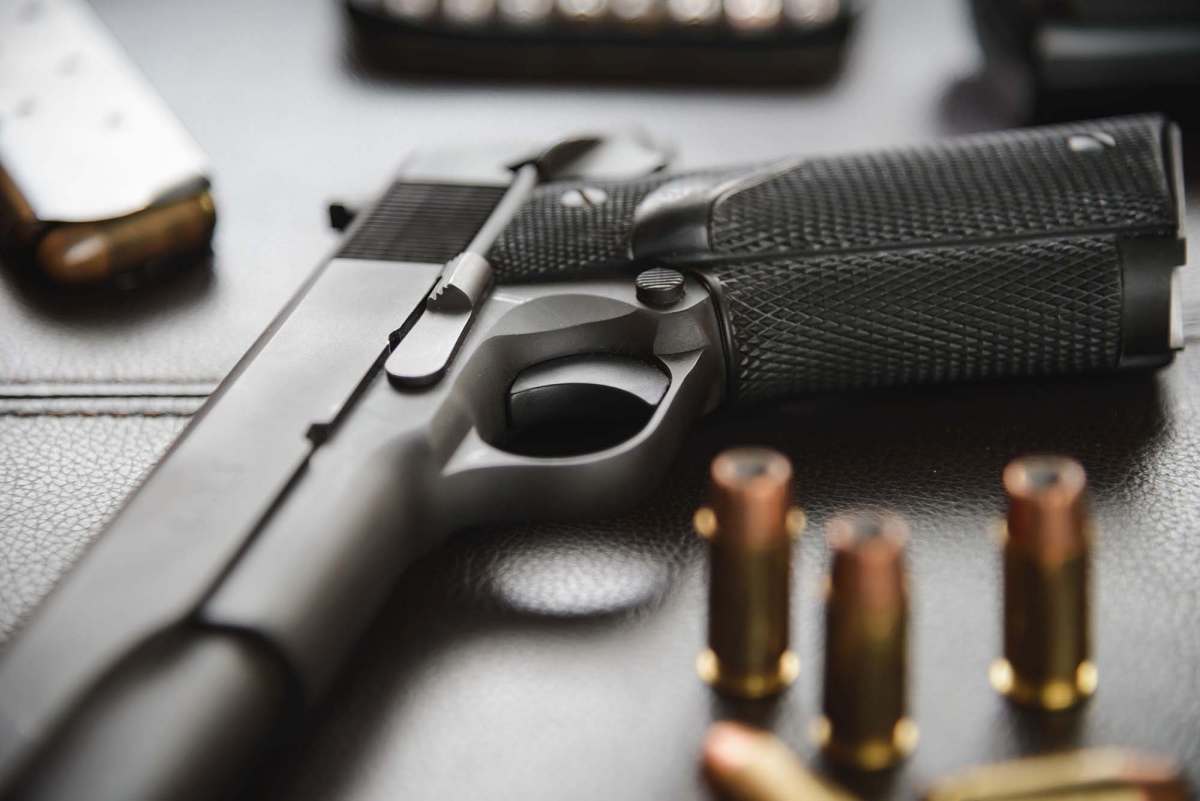
Adding insult to injury, PM Trudeau now aims at allowing cities to ban handguns!
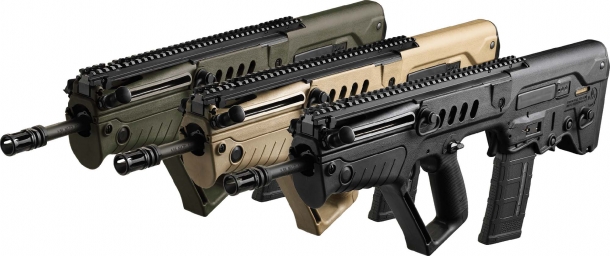
Many modern sporting rifles and carbines are still available on the Canadian market, even after the ban, but for how much longer?
However, most of the modern sporting rifles and carbines not touched by the ban – and indeed many of those now Prohibited as well! – were or still are classified as Non Restricted, meaning that many of them are not registered. Just like in New Zealand, it will be very hard for the Canadian Government and the RCMP to find them all and "take them off the streets".
The new Canadian gun ban is bound to become a multi-billion dollar boondoggle, just like the New Zealand gun ban. After all, as NFA President Sheldon Clare eloquently stated on April 23, Canada's strict gun control failed to protect Canadian citizens and did not stop the Nova Scotia rampage.
The very same Liberal Party seems to know all too well that their gun control will not work – not in reducing crime, deter terrorist attacks and prevent mass shootings – and yet Justin Trudeau seems hell-bent to follow a road paved by other like-minded political "leaders" elsewhere in the world. And while this may appeal to voters in Toronto, Ottawa or Montréal, the same can't be said for the rest of Canada.
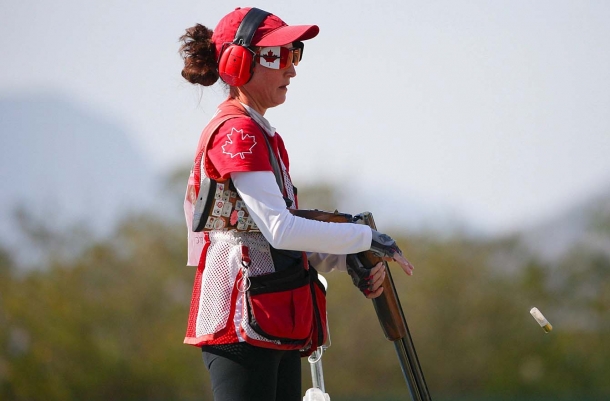
One thing is for certain: Canadian hunters and shooters will now react to defend their rich heritage!
In the past couple of months, an official petition asking the Canadian Government to bring any and all gun control proposal before the Parliament was signed by approximately 160.000 Canadian citizens.
Canada is home to just over 37 million people, and this was the most successful petition to the Government in the history of the Country.
Over 52.000 signatures came from citizens of Ontario, the one Province of Canada that has always either elected Liberal Party candidates or ruined their electoral chances if they underperformed.
Trudeau's decision to ignore the will of so many Canadian citizens may thus not go unpunished: as observers warn, dark times may be ahead for the Liberal Party of Canada. And an Order in Council can be nullified by another OiC or by an act of Parliament just as easily as it has been enacted.

